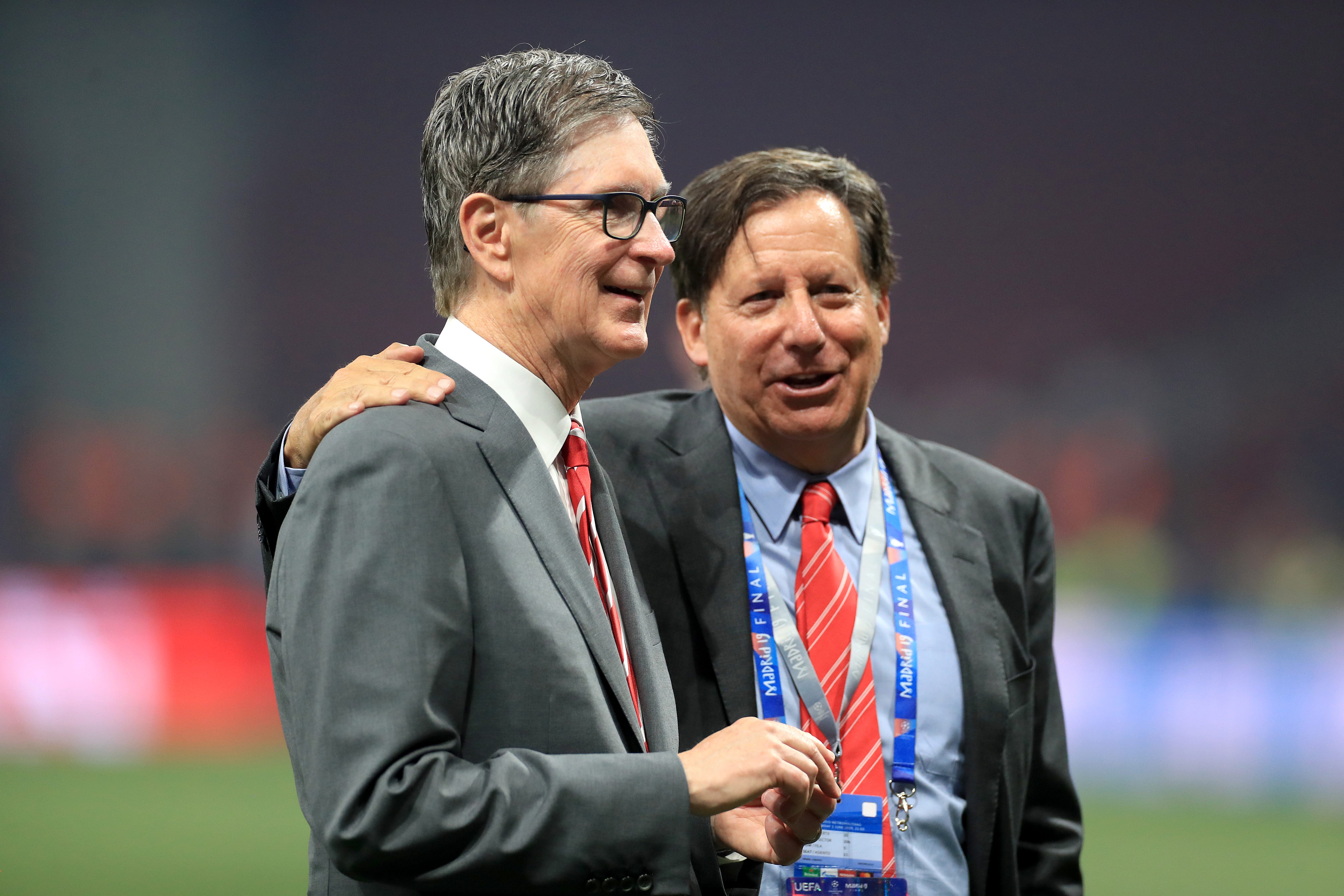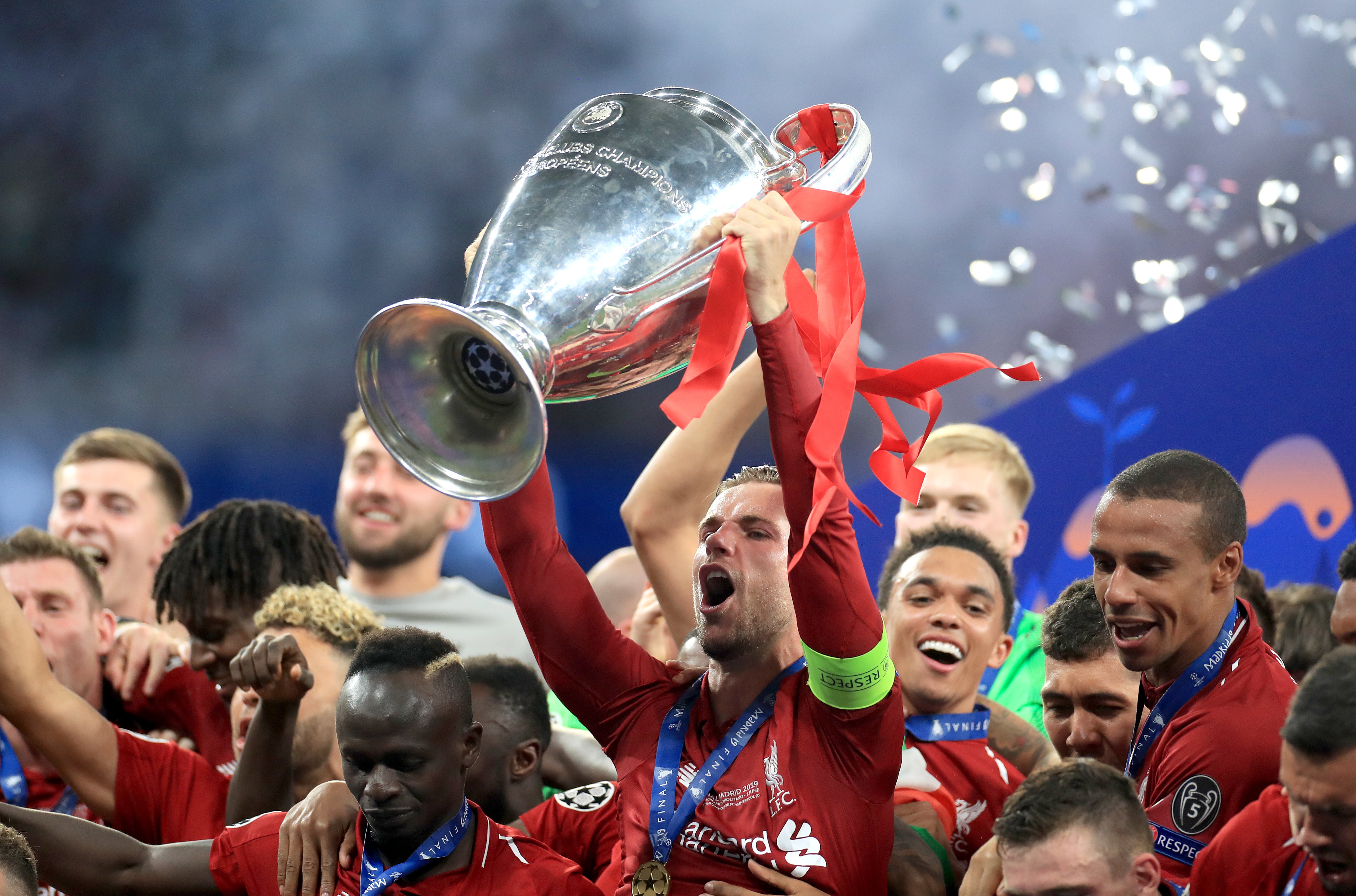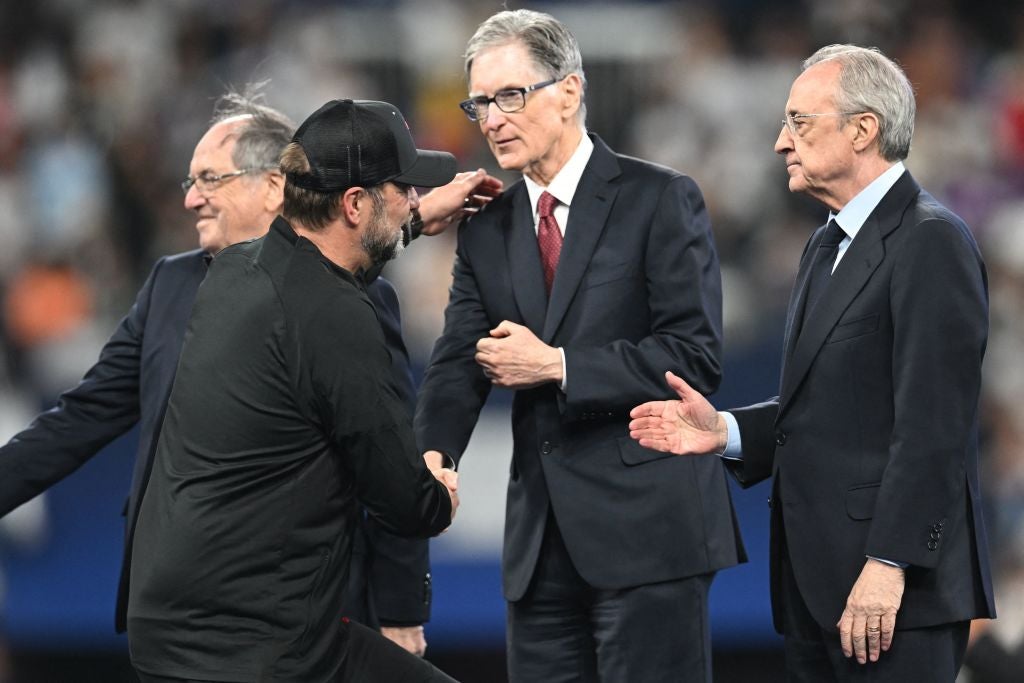
If, as has been suggested, Fenway Sports Group turns a £300million investment in Liverpool into a $5billion sale in a dozen years, the venture capitalists may reflect on two of the best business decisions they ever made. One was simply buying Liverpool, recognising an undervalued asset, acting quickly – as New England Sports Ventures – when Tom Hicks and George Gillett were ousted by the board at the time, seeing the potential. The other was hiring Jurgen Klopp.
There is a host of reasons why Liverpool’s value has mushroomed. It is part of a picture of a broader rise in television rights, particularly for the Premier League and in the American market. It reflects the weakness of the pound against the American dollar. It is influenced by Chelsea’s summer sale and the willingness of various consortia to, in effect, pay £4.25bn for a club with a smaller fanbase, smaller ground and worse team than Liverpool.
It is also indicative of FSG’s strategic successes. It acquired a club with the history and the support. By building a deluxe training ground, by following the redevelopment of the Main Stand with the expansion of the Anfield Road Stand to take their stadium’s capacity to 61,000 next season, it is giving Liverpool the infrastructure. Choosing Klopp, after it got mixed returns from their first two appointments – in Kenny Dalglish and Brendan Rodgers – and when Carlo Ancelotti was a more conventional candidate, has taken Liverpool to another level.
He is Liverpool’s most transformative manager since Bill Shankly. The possibility of new owners prompts the question if there would, or could, be such a mutually beneficial relationship as his unlikely alliance with FSG. They have gone from Lexington Avenue to Liverpool, from an initial meeting in Manhattan to the shared triumphs of the Premier League, the Champions League and, for a year, the official status as the world’s top team. The Moneyballers and the manager who harnesses and feeds off emotion proved a potent combination. Sabermetrics came from the spreadsheet, while heavy-metal football came from the hearts and legs. “I didn’t know if philosophies and personalities, that of the club and Jurgen’s, would mesh,” FSG president Mike Gordon said of their first interview.
They did, which – in some respects – might have been unexpected. Klopp has traded the jeans he often wore in Germany for the tracksuit he normally dons at Anfield, but he cuts a contrasting figure to the hedge-fund managers and commodity brokers in FSG. His informality has enabled him to connect with people in a way few billionaires do. Yet Gordon told Raphael Honigstein for his book Bring the Noise: “Jurgen, as a football manager, was really on the same level as a corporate leader.”
It was intended as a compliment. The businessmen rarely need to worry about the public face of the club. Klopp can seem the charismatic, quotable maverick, prone to giving outspoken views – last week concerning his anger about the Qatar World Cup – but he is often the company man where his employers are concerned. He forged strong bonds with his superiors in his homeland, whether Christian Heidel at Mainz or Hans-Joachim Watzke at Borussia Dortmund, and he has done so with FSG, particularly with Gordon.
Even when he disagrees with his American overlords, he tends to do it diplomatically. He was opposed to the European Super League, which FSG signed up to without consulting him, but did not criticise them personally. Reminded he had spoken out against such proposals long before Liverpool were involved, he simply said: “My opinion didn’t change.” In comparison, Klopp was scathing about Chelsea owner Todd Boehly’s idea for a Premier League All-Star game.

This summer brought an admission that he would sometimes like it if Liverpool took more “risks” in the transfer market, but with an understanding of their financial position; unlike Antonio Conte, he is not forever calling for more money. His more candid comments on the issue tallied with his owners’ views, when he said, “There are three clubs in world football who can do what they want financially,” seemingly referencing Manchester City, Newcastle and Paris Saint-Germain.
It forms part of the context for Liverpool’s possible sale. Klopp has overachieved to do the clean sweep of Premier League, Champions League, FA Cup, League Cup, Community Shield, European Super Cup and Club World Cup, but Man City are a major reason why he has only won each once. This season’s relapse may be the fatigue-influenced antidote to four years of astonishing consistency.
Klopp’s prowess is not just reflected in the trophy cabinet. After beating Ajax to book a place in the last 16, he said that nobody should ever take qualification for the knockout stage of the Champions League for granted. Liverpool are eighth now, but he tends to find a way to conjure a top-four finish and protect their revenue streams.

FSG can judge the financial significance. Liverpool’s broadcasting revenue dipped to £72.1m in 2010-11, their first year at the helm. It was £303.7m in 2020-21 and presumably higher again last season. Klopp’s capacity to build a narrative, to offer excitement and entertainment as well as the potential for success, must contribute to their appeal to sponsors. He is a brilliant brand. Liverpool’s commercial revenue has risen from £85m in 2010 to £153m in 2015, when Klopp was appointed, to £238m in 2021. It is probably bigger still now.
Klopp has been very good for FSG. In general, they have been his kind of owners. It took him the best part of four years to lift silverware. Neither the run of six straight home defeats early in 2021, when he was deprived of all of his senior specialist centre backs, nor his worst start to a season this year has brought any suspicion that his position is under threat. Asked, on the day Boehly sacked Thomas Tuchel, if he feared a similar fate, he replied: “There are different kinds of owners. Our owners are rather calm and expect from me to sort the situation and not expect that someone else will sort it.”
That loyalty and longevity suits him. His most recent contract extension, signed in April and committing him until 2026, came with the intention to build a second team; now, perhaps earlier than expected, Liverpool may be in transition, which in turn requires the patience Tuchel was denied. None of that necessarily means any new owner would prove as trigger-happy as Boehly; while some rule themselves out and others ponder possibilities, it is impossible to be sure.

But Klopp has tended to know where he stood with FSG. Whereas the German was blindsided by Liverpool’s attempts to join the Super League, he was aware that the merchant banks Goldman Sachs and Morgan Stanley would be acting for Fenway Sports Group as it investigates whether to sell the club or a minority shareholding.
But should FSG go, a successor may offer the prospect of a bigger transfer budget, and Klopp would feel one of the biggest assets they were acquiring. It would, though, still add an element of uncertainty to his future.







